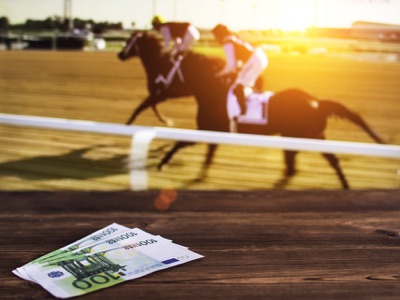 Those that bet regularly understand the lingo and have no problem figuring out what sort of bet they want to place. Those that would more readily identify as occasional bettors perhaps aren’t quite as up-to-scratch with the language as they’d like and find themselves looking at the various markets and not understanding exactly what it all means. One area that feels as though it should be easy enough to get your head around and yet can still be confusing is in the world of Win, Each-Way & Place betting.
Those that bet regularly understand the lingo and have no problem figuring out what sort of bet they want to place. Those that would more readily identify as occasional bettors perhaps aren’t quite as up-to-scratch with the language as they’d like and find themselves looking at the various markets and not understanding exactly what it all means. One area that feels as though it should be easy enough to get your head around and yet can still be confusing is in the world of Win, Each-Way & Place betting.
They rather obviously mean different things, else why would they be out there as different options, but what’s the difference between the three most common bet types? Should you simply place an Each-Way bet every single time as that increases your chance of winning? Or is it a little bit more complicated than that, with plenty for punters to mull over before the head to their bookmaker of choice to place a bet on the horses? The answer, you may well have guessed, is the last one, so I’m going to take a look at the three types of bet and explain why you might want to go for each of them when it’s time to place your wager.
The Three Bet Types Explained
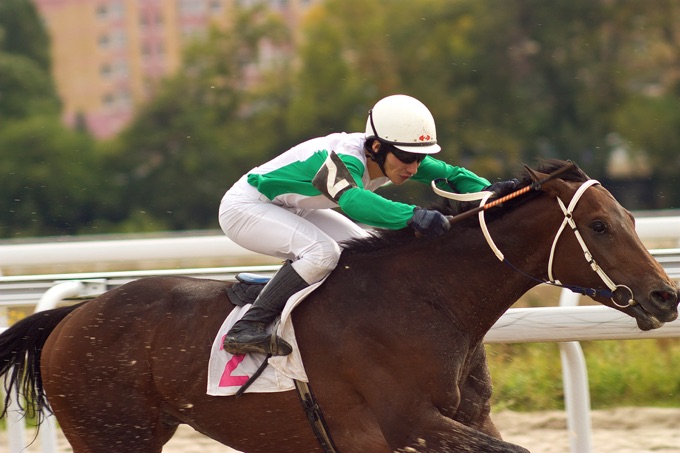
Let’s start with the most obvious section, a look at the three different types of bet. They’re reasonably easy to understand, but it’s still worth spelling it out to make sure you’re placing the type of wager that you actually want to when you head to the bookies.
Win Bet
This is the simplest to get your head around of all three. You are placing a bet that your horse will win the race outright. No ifs, buts or maybes. The phrase ‘first is first, second is nothing’ applies perfectly here. If you place a Win bet then you need your horse to do exactly that: win the race. If to comes in second then you’ll get no payout, nor will get money if it comes in third, fourth or elsewhere in the running.
The only time there’s a slight exception to that rule is if it shares first place with another horse. In this instance, some bookmakers will apply Dead Heat rules, which dictate that the amount you’ll be paid out. It works by splitting the stake by the number of horses that crossed the line in first. Let’s look at a made up example:
You’ve placed a bet on MadeUpHorse to win the Grand National. You bet £100 at odds of 10/1. As the race reaches its climax, MadeUpHorse and InventedHorse both cross the line at exactly the same time and cannot be separated by the judges. In that instance your stake will be cut in half, so it’s essentially like you placed a £50 bet, and the odds remain the same.
Instead of being paid £100 x 10 you’ll be paid £50 x 10. You’re still getting £500 plus your half stake back, but you’ll likely feel a little peeved that it wasn’t £1000 plus your full stake.
In normal Win bets where your horse crosses the finish line first on its own the amount of money you’ll get back is dictated by the odds and your stake. Say you bet £50 on a horse with odds of 3/1, you’ll receive 3 x £50 = £150 plus your initial £50 stake for a total return of £200. Obviously if the horse came second, even if it’s only by a nose, you’ll lose your £50 stake in its entirety.
Each-Way Bets
The best way of thinking about an Each-Way bet is as though it’s actually two separate bets that combine to create one stake amount. Let’s keep things simple and imagine that you’ve bet £100 on MadeUpHorse, well that bet is, in reality, two bets of £50: one on the Win and one on the Place.
It’s for that reason that your bet is doubled when you make it an Each-Way wager. What I meant by that is that with most bookmakers you’ll make your selection, see the odds, enter a stake amount and then be given the option to make it Each-Way, usually by clicking a check box. Say you entered a stake of £10, that means it will actually cost you £20 to place the best.
The bet will then pay out in one of two ways. Either your horse will win the race and you’ll be paid out a winning stake on both sides of the bet, or else it will within the places and you’ll be paid out at a fraction of the odds as indicated when placing the bet.
Each Way Bet: Example 1
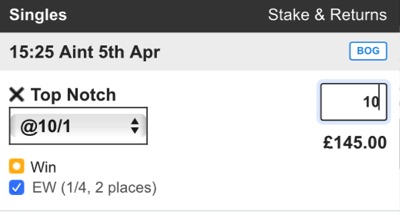 Let’s look at the picture I’ve taken of a bet I was looking to place at the 3.25pm at Aintree on the 5th of April. I entered a stake of £10 on Top Notch at odds of 10/1. That means a £10 bet on the Win and a £10 bet on Top Notch finishing either first or second, because they’re the places offered by Betfair. The Each-Way odds offered by the company are 1/4, which means they’ll pay out at a quarter of the odds. It would look a bit like this if you wrote it down:
Let’s look at the picture I’ve taken of a bet I was looking to place at the 3.25pm at Aintree on the 5th of April. I entered a stake of £10 on Top Notch at odds of 10/1. That means a £10 bet on the Win and a £10 bet on Top Notch finishing either first or second, because they’re the places offered by Betfair. The Each-Way odds offered by the company are 1/4, which means they’ll pay out at a quarter of the odds. It would look a bit like this if you wrote it down:
£10 x (10/4 x 1) = £25 + £10 stake
If your horse is a winner, then, you’d end up getting £10 x 10 for the Win plus £10 x 2.5 for the Place and your two stakes back. That’s £100 + £25 + £20, or a return of £145. If, on the other hand, your horse only finishes second then you’ll simply get the Place payment back, which is £10 x 2.5 + the Place stake of £10, or £35.
That might all look rather complicated, but the simple way to remember it is that you’re placing two bets and you’ll either win both of them if the horse finishes first or one of them if it finishes second. Different bookmakers will pay out different amounts when it comes to the Each-Way part of the bet, to say nothing of paying out for a different number of places, but we’ll look at that separately now.
Each Way Bet: Example 2
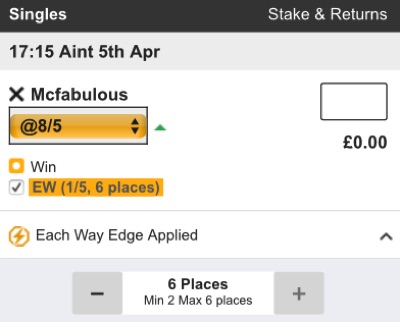 One thing to flag up, though, is the fact that some bookmakers offer you the chance to be paid out on more or less places, with the odds shifting depending on how many places you opt for.
One thing to flag up, though, is the fact that some bookmakers offer you the chance to be paid out on more or less places, with the odds shifting depending on how many places you opt for.
Betfair are a good example of this, with the bookmaker allowing you to shift the number of places in order to adjust the odds they’ll give you. They offered me the following odds on McFabulous depending on how many places I’d take, for example:
- 2 Places: 13/5
- 3 Places: 21/10
- 4 Places: 2/1
- 5 Places: 13/8
- 6 Places: 8/5
Place Bets
The final one of the three bets I’m looking at here is the Place bet. This is, believe it or not, even more complicated than the Each-Way bet, though it might be slightly easier to understand now that you’ve read about Each-Way bets and understand the maths involved.
A Place bet is basically just the Place part of the Each-Way bet, so your stake won’t be doubled but you also won’t receive an extra payout if your horse finishes first. We’ll look at a different example this time, taking Ladbrokes’s odds on the 5.15 pm at Aintree on the 5th of April. Ladbrokes don’t call their Place betting Place betting, confusingly, but rather ‘Top 2 Finish’ or ‘Top 3 Finish’.
The option that you choose will chance the odds of the horse you’re looking at. Let’s take Master Debonair, for example. Opt for the Win and Each-Way market and you’ll see he’s got odds of 10/1. Shift to the Top 2 Finish market, however, and that becomes 7/2. Opt for the Top 3 Finish market and it moves even closer, becoming 15/8.
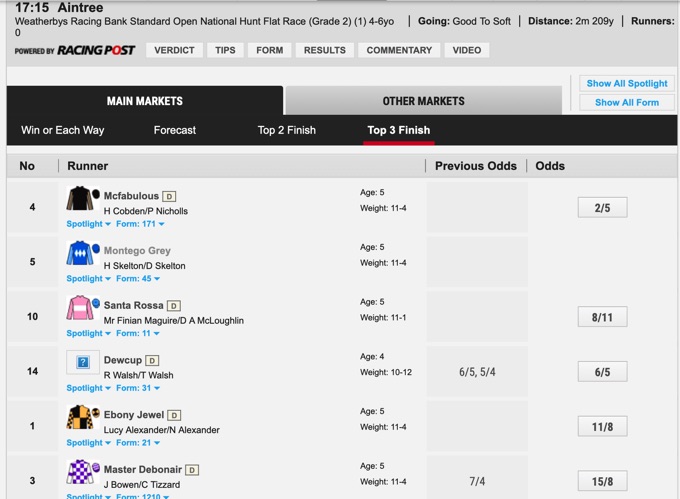
Some bookmakers do it like that, where a bet on a Top 3 Finish pays at out given odds in much the same way as a Win or Each-Way bet pays out at specific odds. Others allow you to put on a Place bet that will pay out according to the rules of the Place bet applied in the Place section of an Each-Way bet. That might all sound a bit confusing, but it amounts to the same thing. You’re being offered odds that are shorter than you’d get if you opted for a Win wager.
I’ll try to simplify things a bit more now. Here’s how you’d be paid out if you’d placed a bet on Master Debonair on each of the following options:
- £10 Win bet at odds of 10/1 = £100 + £10 stakes back
- £10 Each-Way bet at odds of 10/1 = £100 + £25 + £20 stake back
- £10 Top 2 Finish bet at odds of 7/2 = £35 + £10 stake back
- £10 Top 3 Finish bet at odds of 15/8 = £18.75 + £10 stake back
The key thing to remember with a Place bet is that it doesn’t matter where your horse places, you’ll be paid the same amount. So if it finishes first at odds of 15/8 you’ll get a total of £28.75 back, just as you’d get a return of £28.75 if it finished third. It’s about the horse placing, not where it places.
This is what makes a Place bet different from an Each-Way one, because you get paid the extra for coming first in an Each-Way bet because you’ve essentially placed a separated Win bet alongside your Place bet, meaning double the stake but a larger return.
How Many Places Get Paid
Something else that you’ll want to look at because it differs from bookmaker to bookmaker is the number of places that they’re willing to pay on for each race. This is standardised by the Jockey Club and is dictated by the number of horses participating in the race, with the following the typical options offered by bookies who standardise their payouts:
| Number of Horses Running | Number of Places Paid | Odds Paid At |
|---|---|---|
| 5 or Fewer | Win Only | Dictated By Bookie |
| 5 – 7 | 2 | 1/4 |
| More Than 7 | 3 | 1/5 |
| Handicap Races with 12 – 15 | 3 | 1/4 |
| Handicap Races with 16 or More | 4 | 1/4 |
The important thing to remember is that bookmakers can pay out as many or as few places as they see fit, to say nothing of giving themselves different fractions that they’ll pay out at if they want to put on a special offer. You’ll normally find that bookies will increase the number of places they’re paying out for when it comes time for the biggest races, as seen by this Ladbrokes advertisement around the time of the Grand National:
You can see that Ladbrokes were willing to pay out on six places during the Grand National in 2019, offering 1/5 odds for horses that placed. It’s a way of bringing in punters who might otherwise consider betting with a rival firm that would pay less places. The key thing to remember here is that when the big races come around you’d do well to shop around for the best offers.
When to Place Each Type of Bet
It’s perfectly natural to assume that you’ll be best off placing an Each-Way bet every time you place a wager, giving yourself the best odds of seeing a return of some sort. The reality is, though, that there’s no point in placing an Each-Way bet when your wager is on a horse with really short odds.
Let’s say that you’re placing a £10 bet on a horse with odds of 3/2. A Win wager would result in you getting £10 x 3/2 back if it wins, or £15 plus your £10 stake. An Each-Way bet would return that plus £10 x 1/4 = £2.50, or £17.50 plus your original £20 stake. That means that you’re risking £10 for an additional £2.50. If your selection comes second then you’ll lose your £10 stake for the Win side of the bet and only get £12.50 back from your overall £20, so it’s simply not worth it.
If you’re placing a bet on a horse with really short odds then there’s just no real point in opting for the Each-Way market and you’re betting opting for the straight Win single. If, however, you’re betting on a horse with really long odds then that’s where the Each-Way bet comes into its own.
I keep talking about the Grand National because it’s the perfect race to reference when talking about this topic. It’s a race that features a full field and that normally means a selection of horses with dgcedily long odds. Let’s say that you’ve bet on a 200/1 outsider. In that instance it’s reasonably safe to assume that the bookmakers don’t think it’s going to be a winner. It might happen, of course, but you’d be mad to put all of your eggs into the one basket by selecting it is a Win. There’s every chance that it could finish in the places, however, especially if your bookie of choice is offering to payout on numerous places.
This is when an Each-Way bet makes the most sense. You might get extremely lucky and see your horse finish first, especially in a race as crazy as the Grand National, but it’s more likely that it makes it into the places and you’ll then be paid out for either option.
The final thing to consider is when to opt for a Place bet rather than an Each-Way. This one is slightly more difficult to decide upon, though for my money it’s in a race when there is a runaway favourite.
Let’s say that you’re looking at the odds for the St. Leger and the bookmakers’ favourite is a horse that they’re so convinced is going to win that they’re only offering odds of 1/20. It’s as close to a nailed on winner as you’re ever likely to find, so an Each-Way bet is pointless because the Win part of it is only going to win if there’s some sort of disaster.
That is the circumstance that a Place bet makes sense, giving you the best chance of seeing a return for your bet if your horse finishes in any of the places. It means you don’t have to waste £10 on a Win bet that’s extremely unlikely to happen, instead winning money as long as your selection makes any of the places.
Your other option, of course, is to look for the ‘Without X’ market, where bookmakers offer odds on the assumption that X is going to win and therefore they treat it as if X didn’t even take part in the race. The difference with this bet is that you then need your selection to win, whereas a Place bet gives you a bit of leeway.
What the Different Bookmakers Call Place Bets
As mentioned earlier, Ladbrokes don’t call Place bets by that name, instead opting for ‘Top X Finish’. Other bookmakers also have their own name for it, so here’s a look at what the main ones choose to label the market:
| Bookmaker | Place Market Name |
|---|---|
| 10bet | Place Only |
| Ladbrokes | Top 2 or 3 Finish |
| BetVictor | Place Betting |
| Betfair (Sportsbook) | Place |
| 138Bet | Top 2 or 3 Finish |
| mobilebet | PlaceOnly |
| NetBet | Place Only |
That’s not to say that other bookmakers don’t also offer the same thing, just that I couldn’t find it when I looked. If you’re particularly keen to put on a Place bet then it’s always worth asking your bookie of choice if they offer it if it’s not something you can immediately see.
